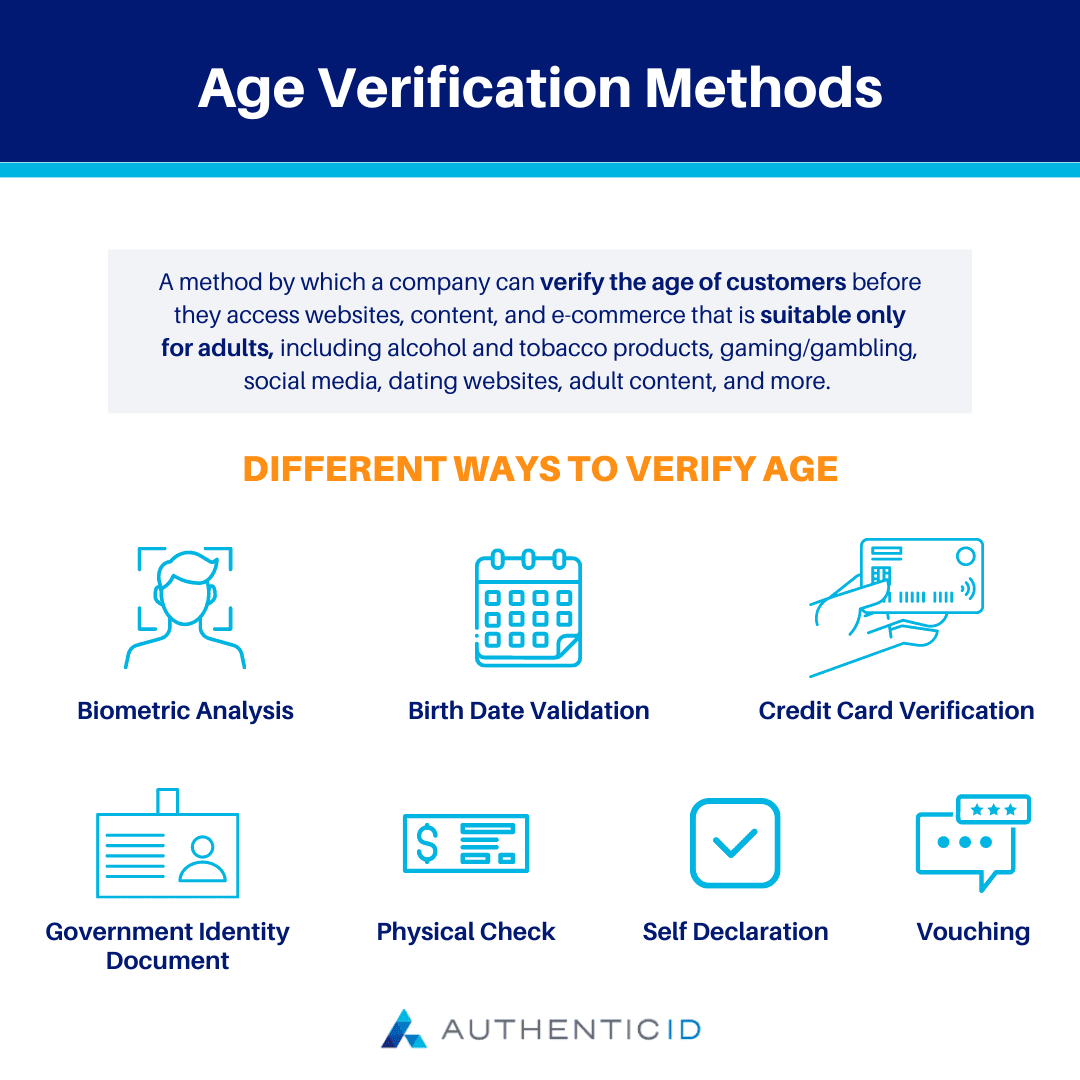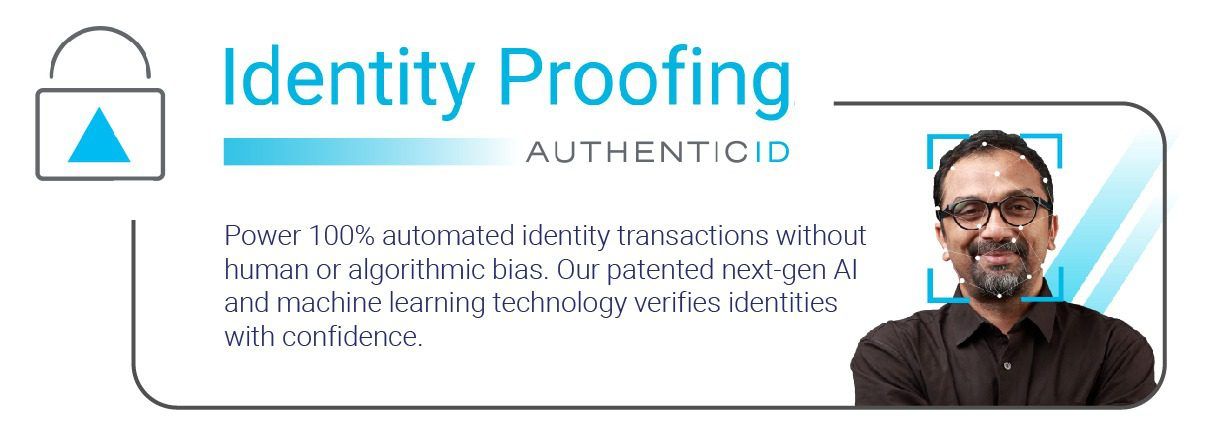Age verification is a security method by which a company can verify the age of customers before they access websites, content, and e-commerce that is suitable only for adults, including alcohol and tobacco products, gaming/gambling, social media, dating websites, adult content, and more. Proper age verification is crucial to promote the online safety of minors and can include date of birth confirmation, ID document verification, selfie verification, and more.
Age verification is a technical protection measure and this process is used to check and verify a person’s age. In some countries, the government requires websites or physical stores to verify a person’s age before they access or purchase age-restricted items.
How does Age Verification work?
There are different methods to verify the age of a person, both AI and non-AI related.
Biometric Analysis: With the help of machine learning and large pre-existing datasets, this technology can estimate your age by analyzing your different facial features and characteristics. So, the larger the dataset, the more accurate the estimate will be.
Birth Date Validation: You will be asked to verify your age by inputting your date of birth.
Credit Card Verification: In some countries (i.e. Austria, Croatia, Spain), credit cards are only offered to people 18 years and older. If you are in these countries, you can confirm your age by showing or using a credit card. Some places may request a payment authorization to add another layer of complexity and verification.
Government Identity Document: You will be asked to take a photo of your government issued identification (i.e. driver’s license, passport, national identity card) and then take a selfie. The technology will check the liveness of the photo and determine if you are a real person and if you are who you say you are.
Physical Check: You can get a physical check where staff members will determine your age. They may also require you to carry a form of identification to prove your age.
Self Declaration: This is not a formal method of age verification. You will be asked to click a button or check a box to confirm that you are a certain age so you can gain access to or proceed on the page.
Vouching: You may also confirm your age by having a credible person vouch for you and confirm your age. There is no rule that limits your voucher’s credibility. For example, there is no rule about how long you and your voucher need to know each other for your voucher to be credible.

What are the benefits of using Age Verification?
In this modern age, we have easy access to the internet and we can buy almost anything whenever and wherever we want; this includes having easy access to age-restricted content and products.
So, one of the biggest benefits of using age verification is to protect our children by restricting their access to certain digital content, whether it is scrolling through inappropriate content, contacting strangers, purchasing age-restricted items, etc. Age Verification can also put parents at rest and allow their children to freely browse the Internet, knowing that their children are in a safer environment with restricted access to certain content.
Another benefit of using Age Verification is geared towards businesses. Businesses can protect themselves from liability by making sure individuals are over a certain age limit during the time of consumption or purchase. Also, by implementing Age Verification, businesses can prevent themselves from incurring non-compliance costs, which occur when a business does not follow legal rules, contracts, policies, etc.
What regulations are related to Age Verification?
- Knowledge-Based Authentication (KBA)
- Know Your Customer (KYC)
- Verifiable Parental Consent (VPC)
- The Children’s Online Privacy Protection Act (COPPA)
- The Cellular Telecommunications and Internet Association (CTIA)
- Prevent All Cigarette Trafficking (PACT)
- General Data Protection Regulation (GDPR) → a regulation in the European Union (EU) law
- The Digital Economy Act 2017 → an Act of the Parliament of the United Kingdom (UK)
- The Australian Communications and Media Authority (ACMA) → Australia

What are the use cases/relevant industries for Age Verification?
- Age-Restricted Products (i.e. alcohol, e-cigarette, marijuana, tobacco, vape, weapons)
- Explicit Content (i.e. pornography)
- E-Commerce
- E-Gaming
- Entertainment (i.e. bars, clubs, casinos, taverns)
- Gambling
- Online (i.e. websites, social media platforms, dating apps)
- Telehealth
What is the latest news on Age Verification?
Social media platforms, especially Instagram, have been starting to test new tools for age verification. They understand the benefits of using age verification, especially to protect their younger audience members. This technology can crack down on a critical problem: human trafficking. Social media platforms can restrict users from seeing certain posts or contacting random accounts. These platforms can also restrict certain advertisements from popping up on their pages.